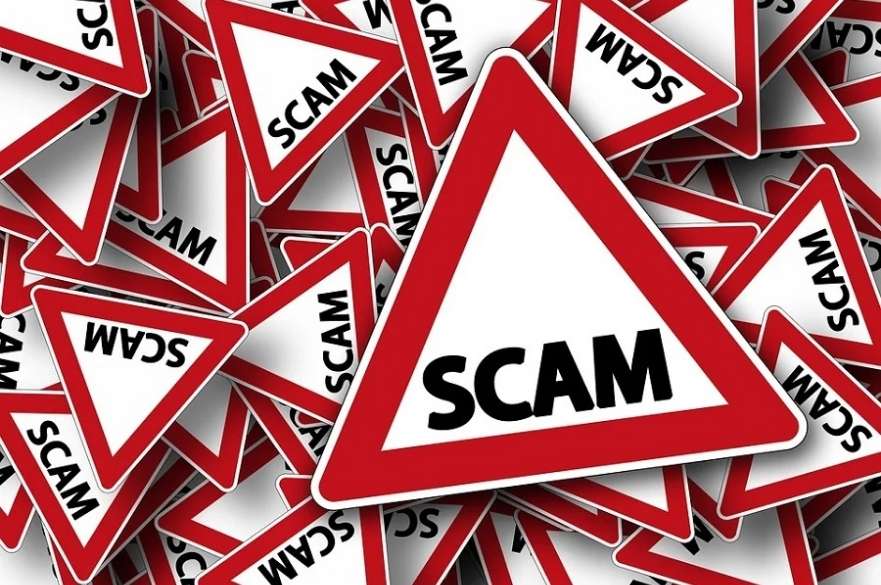It’s becoming increasingly difficult to spot the difference between a scam and something genuine.
Scammers are employing more sophisticated techniques to take advantage of vulnerable or unsuspecting people, but Derby City Council’s Trading Standards team have plenty of advice and support that can help keep you safe.
Email scams
When it comes to email scams, they can be tricky to spot and made to look genuine. We recently received reports that residents were receiving emails asking for confidential information from noreply@derby.com, complete with DCC reference numbers to make the email seem genuine.
Phishing emails like this attempt to trick people into handing over information or to open malicious attachments. Other common examples include emails about parcel deliveries you weren’t expecting or emails asking for urgent payments.
The government, HMRC, WHO and banks will never ask you for your personal details or discuss any tax refunds over email. There are a number of other signs to look out for that can help identify a phishing email including:
- Is it addressed to you by name, or does it refer to a valued customer? This can be a sign that the sender doesn’t actually know you.
- Look at the senders name and email address. Do they sound legitimate?
- Were you expecting someone to get in touch, and does their offer seem too good to be true?
- Many phishing emails have poor grammar, punctuation and spelling.
Phone scams
There are several different phone scams circulating, including calls impersonating the Police and asking for information. If you receive an unexpected call, regardless of the claims the caller is making, you should take a moment to stop and think.
The Council, NHS, Police or other similar services will never ask you to disclose any personal information or make any payments over the phone. Similarly, banks will never call and ask for your PIN or to transfer money to another account. If you receive any calls like this, hang up and report it to the organisation.
Car parking scams
Many car parks have made the switch to cashless payments using payments online or through an app. Scammers have tried to cash in on this by sticking fake QR codes to pay machines and tariff boards that lead to money being falsely taken from people’s bank accounts.
The advice from DCC’s Trading Standards is to check if the QR code looks genuine or use a payment app instead. All council-run car parks in Derby are payable using the MiPermit app. Our team of enforcement officers also carry out regular checks of any QR codes in our car parks to make sure they link to the appropriate website.
Ghost Broking
‘Ghost Broking’ a tactic used by fraudsters who pose as genuine insurance brokers and sell fraudulent insurance policies. They typically lure in their victims on social media offering ‘discounted’ but fraudulent insurance policies.
Remember if something about the offer doesn’t seem right, whether that’s unprofessional advertising, a lack of legitimate website or phone number, or the seller only wanting to communicate via social media, then it could be scam. Take a step back and make sure you do your checks:
If buying through a broker, check they're registered with British Insurance Brokers' Association (BIBA).
If buying directly through an insurer, check they're a member of Motor Insurers' Bureau (MIB).
Whether broker or insurer, check they're registered with the Financial Conduct Authority (FCA). If they're not, it's best to avoid them.
Councillor Shiraz Khan, Cabinet Member for Housing, Property and Regulatory Services, said:
It is a great shame that some in our society seek to take advantage of vulnerable and unsuspecting people, but citizens should be assured that there is support available.
I would remind anyone if you think someone might be trying to scam you, take a step back, get advice, and never give over any personal details to anyone you suspect isn’t genuine.
Our Trading Standards team are here to support you, and I want to thank them for the hard work they do keeping the people of Derby safe.
More information about the outbreak of scams can be found on the National Trading Standards website.
Trading Standards would like to remind residents to remain vigilant and #ScamAware throughout this challenging time and can report issues to Trading Standards and obtain consumer advice through Citizens Advice and Consumer Service 0808 223 11 33 and report fraud through Action Fraud 0300 123 2040
